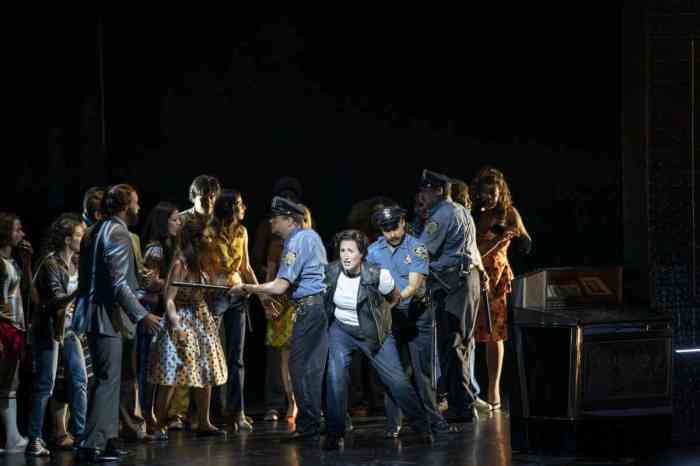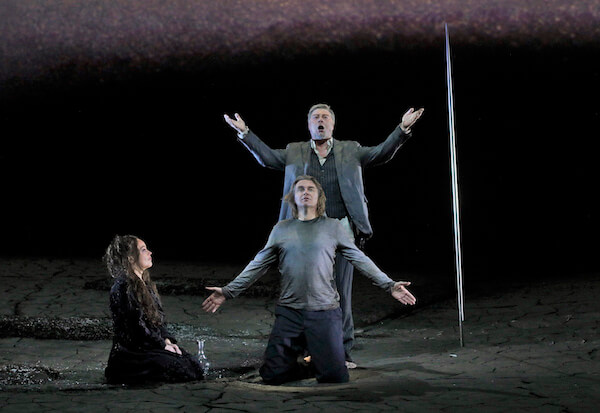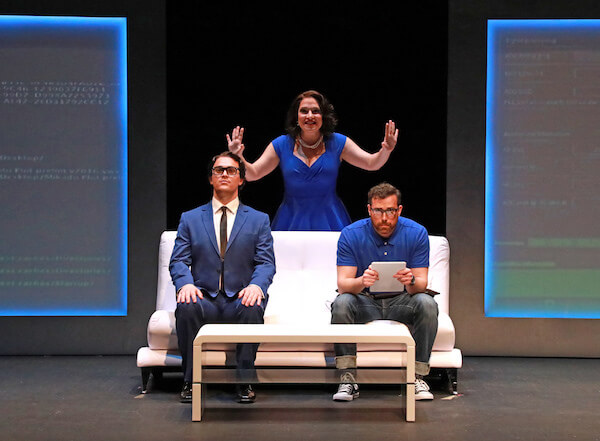Composer Justine F. Chen. | AMERICAN LYRIC THEATER
Gay operatic history may be made January 12 at Manhattan’s Merkin Hall, at the world premiere – in concert – of “The Life and Death(s) of Alan Turing.”
This historical fantasia, cutting-edge composer Justine F. Chen’s first full-length opera, enlists experienced playwright David Simpatico’s libretto to create speculative versions of the renowned IT scientist’s triumph, struggle, and still mysterious 1954 death after being arrested under Britain’s notorious “gross indecency” act that had also destroyed Oscar Wilde.
Many know versions of Turing’s story from 2014’s “The Imitation Game” starring Benedict Cumberbatch — which all but eliminated actual homosex from Turing’s activities (Simpatico tactfully praised the sets and costumes) – or 1996’s “Breaking the Code” starring Derek Jacobi. Best of the lot — though its main circulation was at LGBT film festivals — is Patrick Sammon’s 2011 “Codebreaker,” a talking heads documentary with dramatic reconstructions.
New opera multiply imagines Britain’s groundbreaking, codebreaking computer genius
Director Lawrence Edelson founded American Lyric Theater in 2005. Through fellowships, workshops, and development processes that yearly pair four librettists with four composers, ALT has developed a number of one-act and full-length pieces. One recent success was “J.F.K.” with music by David T. Little to Royce Vavrek’s words, launched at Fort Worth this past June. Another definitively queer-themed work ALT developed was Jeffrey Dennis Smith’s 2015 one-act vehicle for character tenor extraordinaire Keith Jameson, “Why is Eartha Kitt Trying to Kill Me?: A Love Story”.
The Turing project was commissioned in 2012, when Simpatico and Chen participated in ALT’s workshop and got along like a house afire. An actor friend had long before asked Simpatico to write a one-man Turing show, yielding the idea to make his story, full of achievement and tragedy, an opera.
“It was a great experience to investigate the intensity of personal and public dynamics in his story,” Simpatico said. “I look at him as a Promethean character: a gay man born in 1912 who created the cyberworld, saved the Allies in World War II, and yet was tossed aside due to his sexuality.”
Librettist David Simpatico. | AMERICAN LYRIC THEATER
As a writer new to opera, Simpatico praised “brilliant” dramaturg Cori Ellison.
The “higher drama” of Turing’s life amazed Juilliard-trained Chen, who further noted how attached contemporary composers are to the computers his innovations rendered possible. She noted two points of departure for the score’s admixture of “period” sound: Turing’s lifelong obsession with “Snow White” yielded an early Disney influence; plus, the fact that the codebreaking team at “Hut 8” felt guilty about having such a “fun” war suggested the Andrews Sisters. In a thematic link to randomness, she and Simpatico decided to offer four distinctly different versions of the end of Turing’s life.
Lidiya Yankovskaya conducts a cast of fine young American singers: baritone Jonathan Michie as Turing, with soprano Keely Futterer, mezzo Elise Quagliata, tenors Javier Abreu and Andrew Bidlack, and bass-baritones Joseph Beutel and Thomas Shivone, plus the choral forces of MasterVoices.
Beyond the important gay history angle, Edelson argued, the whole world should know about Turing.
“I am amazed – every day – by how far what he created impacts everything we do – every day,” Edelson said.
THE LIFE AND DEATH(S) OF ALAN TURING | Merkin Concert Hall, Kaufman Music Center, 129 W. 67th St. | Jan. 12 at 7:30 p.m. | $25-$125 at altnyc.org/the-life-and-deaths-of-alan-turing
David Shengold (shengold@yahoo.com) writes about opera for many venues.



































